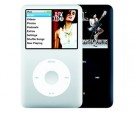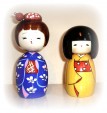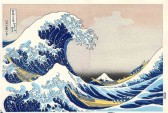Shopping
Shopping is one of the great pleasures of a trip to Japan. It is not only the tourists who delight in the range of shops, but the Japanese themselves are avid shoppers. A clever shopper will find items to suit every budget. Japan has it all, from surprisingly inexpensive souvenirs to the latest in electronic wizardry, from traditional craft stalls to gigantic shopping malls and dazzling department stores. The call of irasshaimase welcomes shoppers into both the cheapest and the most expensive shopping outlets.
Shopping Hours
General business hours are from 9am to 5pm. Banks are open weekdays from 9am to 3pm. Post Offices are open weekdays 9am to 5pm and generally closed Saturdays and Sundays. Supermarkets and department stores are open 10am to 7pm or 8pm. Most are closed one day per week, with the closing day varying from store to store. Family run businesses and stalls are usually open daily, including Saturdays and Sundays. Convenience stores are open 7 days a week, 24 hours a day and sell a variety of essential items. Automatic vending machines are widespread throughout Japan, offering hot and cold drinks, snacks, food etc.
Sales
Most department stores have two major sales a year, a summer sale in July and a winter sale in December or January. Department stores also have a bargain floor with regular sales. Usually this is located on one of the top floors and may feature "theme" sales. The sales change weekly and may feature stalls from other regions of Japan, seasonal sales and festival sales. The big gift-giving seasons in Japan are chugen in July and seibo in December. Stores set up special departments and put gift packs on sale. Popular items include wine, whisky, sweets and packaged food. These can also make delightful souvenir gifts.
Cash, Credit Cards & Cheques
Traveller's cheques and credit cards are accepted in large cities and most large hotels, restaurants and department stores. Most banks have a special foreign exchange section where foreign cash and traveller's cheques can be exchanged for yen. Visa, MasterCard, American Express, Diners Club and JTB Card are the most widely accepted credit cards. However, rural areas, small hotels and inns, youth hostels, local restaurants and shops usually only accept cash. Cash is by far the easiest method of payment in Japan. In most shops and restaurants a small tray is offered for payment. Money is placed in the tray and the change is returned without hand-to-hand contact. The unit of currency in Japan is the yen. Notes are ¥10,000, ¥5,000, and ¥1,000 yen. Most recently a ¥2,000 yen note has been introduced. Coins are ¥500, ¥100, ¥50, ¥10, ¥5 and ¥1. Japan has a 5% consumption tax which is often not included in the displayed price. The tax is added automatically when goods are paid for at the point of sale.



